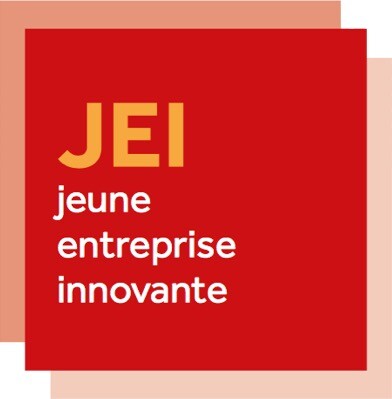Artificial Intelligence
At Novelis, we believe in the future of new technologies, especially in the fact that AI will occupy a dominant place in the digital space of organizations.
Knowledge and mastery of AI, the ability to deploy projects and solutions around AI and to be able to meet the needs of business challenges, are skills that require a lot of time to acquire and to master: this is the work that our researchers have been doing since the opening of our laboratory at the creation of Novelis.
What is AI really?
According to one of its many definitions, Artificial Intelligence would be a field of science and technology that would allow to imitate, extend and increase human intelligence through the machine.
“There is no single definition, it depends on the point of view of each person (social, scientific…). There is no universal definition of AI” explains El Hassane Ettifouri – Chief Innovation Officer of Novelis.
Scientifically speaking, the most accurate way to describe AI would be to say that AI is the ability to imitate natural intelligence.
Today, all companies are doing AI… but are they really doing it?
Since the beginning of the 1950s, many companies claim to be “doing AI” by offering some form of AI in the products or services they market and thus surfing on the technological wave. Since there is no precise and universal definition of AI, these companies are within their rights, but in reality, they are only using a sub-domain of it and a tiny part of its power.
At Novelis and through our R&D Lab, we put a quarter of our revenue into scientific research to advance new technologies especially in the application areas of AI and NLP and we use several sub-areas of it in our research work.
First of all, we use Machine Learning for one of our software solutions, Novy POM, to make the processing of invoices and purchase orders intelligent. Indeed, when the solution receives an invoice, it will be able to learn how to locate the invoice number, the amount, the customer’s name, etc. It improves over time and learns as it goes along without having been programmed specifically for this purpose. Machine Learning is the ability of the machine to learn new things that it has never seen before.
NLP (Natural Language Processing) also includes several sub-domains that we use at Novelis such as text classification, extraction of information from a text or translation. We use NLP by translating a natural language into an artificial language (a machine language).
Thanks to this, we are currently participating in a major international NLP challenge, called SPIDER, for which we won 2nd place alongside the tech giants at the time of submission of our work (this type of challenge is evolving and the results are therefore likely to change over time). We also won 1st place in the international CodeXGLUE challenge, organised by Microsoft, on generating Java code from natural language.
The computer vision and machine vision that we have also experimented in the context of a PoC where we were able to work on the implementation of a solution to detect words and objects in a video through AI (Machine Learning, Image Processing, Speech Processing, …)
Image recognition is part of Computer Vision and AI and represents a set of methods for analyzing images in order to automate a specific task. Image recognition allows to identify people, places or objects for example.
Video recognition goes one step further: it is the ability of the machine to analyze data from videos. The machine can “see” thousands of video streams and can “understand” the information it receives frame by frame.
What sets us apart at Novelis?
We offer AI-enabled solutions using the latest scientific advances in AI, mastering all its subfields, and participating in the improvement of the state of the art in these areas, unlike other companies that exploit only a tiny part of this technology.

We benefit from the credibility of our R&D Laboratory, composed of experts and doctors in AI and computer science working on different projects around NLP, image processing, RPA (Robotic Process Automation), and AI globally.
Since 2019, 7 scientific articles have already been published and/or are in the process of being validated by the scientific community. Our work has been recognized by the Ministry of Higher Education and Research, two years in a row, allowing us to access the Young Innovative Company Label.
Novelis Research Lab
At Novelis, we are committed to using new technologies as tools to better serve our clients’ business challenges and thus better support them in their transformation.
To meet these needs, we have set up an ambitious laboratory in terms of research and development with substantial investments: we invest more than a quarter of our turnover in research.
This R&D laboratory is housed at the École Polytechnique and benefits from the school’s scientific ecosystem. A dozen PhD researchers work there on a daily basis on fundamental and experimental research on AI: machine learning, image processing and NLP.
Our scientific publications
Graphical user interface agents optimization for visual instruction grounding using multi-modal Artificial Intelligence systems
Discover the first version of our scientific publication "Graphical user interface agents optimizat...
Benchmarking Open-Source Language Models for Efficient Question Answering in Industrial Applications
Discover the first version of our scientific publication "Benchmarking Open-Source Language Models ...
Low-Cost Language Models: Survey and Performance Evaluation on Python Code Generation
Discover the first version of our scientific publication "Low-cost deep language models: Survey and...
GPT-3.5, GPT-4, or BARD? Evaluating LLMs reasoning ability in zero-shot learning and performance boosting through prompts
Discover our scientific publication "GPT-3.5, GPT-4, or BARD? Evaluating LLMs reasoning ability in ...
GPT-3.5 vs GPT-4: Evaluating ChatGPT’s Reasoning Performance in Zero-shot Learning
Discover the first version of our scientific publication "GPT-3.5 vs GPT-4: Evaluating ChatGPT's Re...
A comprehensive review of State-of-The-Art methods for Java code generation from Natural Language Text
Discover our scientific publication "A comprehensive review of State-of-The-Art methods for Java co...
JaCoText: A Pretrained Model for Java Code-Text Generation
Discover our article on JaCoText: A Pretrained Model for Java Code-Text Generation published i...
SQL Generation from Natural Language: A Seq2Seq Model – Transformers Architecture
Novelis technical experts have once again achieved a new state-of-the-art in science. Discover our ...
ACM – Impact of robotic process automation in supply chain: A model for task selection
Robotic process automation (RPA) is one of the most emerging technology areas of the last decade. A...
Artificial Neural Networks for Text-to-SQL Task: State of the Art
Discover our conference paper Artificial Neural Networks for Text-to-SQL Task: State of the Ar...
